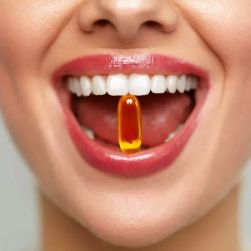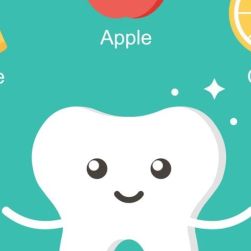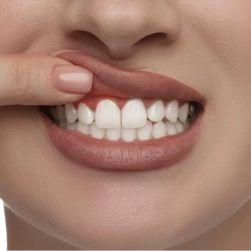Foods to Avoid for Better Oral Hygiene
Maintaining good oral hygiene goes beyond regular brushing and flossing. The foods you consume play a significant role in the health of your teeth and gums. While certain foods can boost your oral health, others can contribute to tooth decay, gum disease, and other dental issues. Many common foods and beverages that are part of the modern American diet can lead to harmful effects on your teeth, often without you realizing it.
As dental health experts emphasize, oral hygiene is not just about avoiding sugary snacks—certain acidic, sticky, or processed foods can also negatively impact the enamel of your teeth and increase the risk of cavities and other oral health problems. This article will explore the types of foods that you should avoid to maintain strong, healthy teeth and gums. By making informed dietary choices, you can complement your oral hygiene routine and help prevent common dental issues. From sticky candies to sugary drinks, understanding which foods to avoid is essential for better oral hygiene.
1. Sugary Snacks and Sweets
One of the most well-known culprits when it comes to poor oral hygiene is sugar. Sugary foods, such as candies, cakes, and soda, contribute directly to the formation of cavities. When you consume sugar, bacteria in your mouth feed on it, producing acids that attack tooth enamel. This process, known as demineralization, weakens your teeth and can lead to cavities over time.
Research shows that frequent consumption of sugary snacks significantly increases the risk of tooth decay. In fact, the American Dental Association (ADA) has warned that eating sugary foods throughout the day, rather than in one sitting, provides a continuous supply of fuel for harmful bacteria, giving them more time to produce damaging acids. The sticky nature of many sweets further exacerbates the problem, as the sugar clings to the surfaces of your teeth, making it harder to remove with regular brushing.
To protect your oral health, try to limit your intake of sugary foods. When you do indulge in a sweet treat, it’s best to consume it during a meal rather than as a snack. Saliva production increases during meals, which helps wash away sugars and neutralize acids in the mouth. Additionally, it’s important to brush and floss after eating sugary foods to remove any leftover sugar and bacteria from your mouth.
2. Acidic Foods and Beverages
While acidic foods are often packed with essential vitamins and nutrients, they can also be damaging to your tooth enamel. Foods such as citrus fruits (oranges, lemons, and grapefruits), tomatoes, and vinegar contain high levels of acid that can wear away enamel, making your teeth more vulnerable to cavities and sensitivity.
The enamel on your teeth acts as a protective barrier, and once it’s weakened or eroded, it can’t be repaired. Frequent exposure to acidic foods and beverages can accelerate this process. This is why it’s essential to limit your consumption of highly acidic foods and to be mindful of how often you consume them. For example, drinking large quantities of citrus juice throughout the day can continuously expose your teeth to acid, leading to enamel erosion.
If you do consume acidic foods, try to rinse your mouth with water afterward to neutralize the acid. Avoid brushing your teeth immediately after eating acidic foods, as this can cause further damage to softened enamel. Instead, wait at least 30 minutes before brushing to give your teeth time to re-harden.
3. Starchy Foods and Carbohydrates
Foods high in starch, such as chips, bread, and pasta, are not only often processed with added sugars, but they also break down into simple sugars in your mouth. When you chew starchy foods, they tend to stick to your teeth, providing a constant supply of sugar for bacteria to feed on, increasing the risk of tooth decay and gum disease.
In addition, starchy foods can contribute to the formation of plaque, a sticky film of bacteria that coats your teeth. Plaque is a major contributor to cavities, as well as gum disease, if left untreated. When plaque isn’t removed with regular brushing and flossing, it hardens into tartar, which can only be removed by a dentist or hygienist.
To minimize the negative effects of starchy foods, try to balance your meals with fiber-rich fruits and vegetables, which can help cleanse your teeth naturally. Eating starchy foods in moderation, along with drinking plenty of water to rinse your mouth, can help reduce their impact on your oral health.
4. Sticky Foods and Dried Fruits
While dried fruits, such as raisins and apricots, can be a healthy snack option, they can be problematic for your oral health. Sticky foods tend to cling to your teeth for an extended period, making them harder to remove and providing bacteria with a constant food source. As the food breaks down in your mouth, it leaves behind sugars that feed harmful bacteria, increasing the likelihood of cavities.
Dried fruits also have the additional concern of being high in natural sugars. While these sugars may not be as processed as those found in candies, they can still lead to tooth decay if left on the teeth. Sticky snacks, such as caramel or gummy candies, also present similar issues, as they adhere to the surfaces of your teeth and are difficult to remove with just brushing.
If you enjoy dried fruits, be sure to brush your teeth afterward or drink water to help wash away any leftover sticky residue. If you’re looking for a snack that’s better for your teeth, consider fresh fruits and vegetables, which are less likely to stick to your teeth and provide more nutritional benefits.
5. Sugary Beverages and Soft Drinks
One of the most detrimental habits for oral health is the frequent consumption of sugary beverages, including soda, sweetened coffee, and energy drinks. These beverages are not only loaded with sugar, but they also contain acids that can contribute to tooth enamel erosion. The combination of sugar and acid makes sugary drinks particularly harmful, as they attack the enamel from two different angles.
Studies have shown that sugary beverages can lead to severe dental problems such as cavities, gum disease, and even tooth loss. In addition to the sugar and acids, many soft drinks contain phosphoric acid and citric acid, which can weaken tooth enamel and make your teeth more susceptible to decay. Regular consumption of these beverages can also lead to staining and discoloration of the teeth.
To protect your teeth, try to limit sugary drinks in your diet. If you do drink soda or other sugary beverages, try using a straw to minimize contact with your teeth. Rinse your mouth with water afterward to neutralize acids and wash away sugars. It's best to reserve sugary drinks for special occasions, and stick to water or unsweetened beverages for daily hydration.
6. Alcoholic Beverages
While alcohol may not directly cause cavities, it can contribute to several oral health problems that increase the risk of tooth decay and gum disease. Alcoholic drinks, particularly those that are sugary (like cocktails and flavored liquors), can lead to dehydration, which reduces saliva production. Saliva is essential for neutralizing acids, washing away food particles, and protecting the enamel of your teeth.
Furthermore, alcohol consumption can increase your risk of gum disease, as it weakens the immune system and makes it harder for your body to fight infections. Studies have also shown that heavy alcohol use is linked to an increased risk of oral cancers, including cancers of the mouth, tongue, and throat.
To maintain optimal oral health, limit alcohol consumption and ensure that you stay hydrated by drinking plenty of water. If you do drink alcohol, consider rinsing your mouth with water afterward to help prevent dry mouth and minimize the impact on your oral health.
Conclusion: Making Smarter Choices for Oral Hygiene
While many of the foods and drinks that can harm your oral health are widely available and easily accessible, making mindful choices in your diet can go a long way in protecting your teeth and gums. By reducing your intake of sugary foods, acidic beverages, starchy snacks, and sticky treats, you can significantly reduce the risk of tooth decay, gum disease, and other dental issues.
Remember, oral hygiene doesn’t just depend on brushing and flossing; it’s also influenced by the foods and beverages you consume. By choosing healthier alternatives and balancing your diet, you can help maintain strong, cavity-free teeth for years to come. Visit your dentist regularly for professional cleanings and check-ups to ensure that your oral health is on the right track.
For more tips on maintaining a healthy mouth and body, visit Dentistry Toothtruth and explore our other articles on oral care and overall health.






